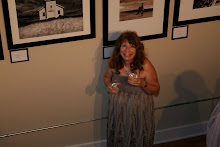Peter Field Jefferson was the son of Field Jefferson of Lunenberg later Mecklenburg County, Virginia. At the time of Peter Field's birth the monarch of England was George II. George II reigned until 1760 when Peter Field was a young man. George III acceded to the throne in 1760. One of the developments of the colonist at this time was the growing pride and affection for the mother country. But the mother country felt that the colonists were growing out of control and needed to be brought under stricter supervision. One of the first measures that was taken was the Proclamation Line of 1763. In the Words of the Proclamation Line of 1763, "whereas great frauds and abuses have been committed in purchasing lands of the Indians, and abuses have been committed in purchasing lands of the Indians, to the great prejudice of our interests, and to the great dissatisfaction of the Indians...," and in order to convince the Indians "of our justice and determined resolution to remove all reasonable cause of discontent we do ...strictly enjoin and require, that no private person do presume to make any purchase from the said Indians within the limits of our colonies..." Any land purchases must be made through officials of the British government, and no trading could be conducted with the Indians without a license issued in the name of the governor of the province. Many of the colonists felt that the English Government was subordinating their interests for the interests of others. One of the reasons for the English Governments law was to confine settlement to the Atlantic Coastline so that the settlements would be close to the shipping and English commerce. However this did not stop many Virginians from settling outside the Proclamation Line. From a Map of the Original Area Embraced in Lunenburg County, Virginia 1746, I believe that Field and his family lived in the boundaries of that area.
One of the biggest pressures on the British at this time was the great expenditure of the English motherland on the French and Indian War. Their debt was calculated at almost 140 million pounds. The men of the Parliament felt that they were already being taxed enough. For instance, windowpanes were taxed, along with beer, cider, salt and much more was taxed. They felt as if they had been taxed enough. And not only that but the British were having to pay for the 10,000 soldiers that were left in the colonies for their protection. Parliament had calculated that a colonist was being taxed at 8 shillings a person whereas an Englishman was being taxed at 18 pounds per person. They considered this extremely unfair.
At this time Field is still living at home or near his father's home. He married Elizabeth Allen on May 29, 1762 in Cumberland County.
In the Book Marriage Records of Cumberland County, page 74 Peterfield Jefferson married Elizabeth Allen on May 29, 1762 Surety: John Jefferson (This was probably his brother)
Consent: Sam Allen gives consent for his daughter to marry.
Teste: Daniel Bates Teste: Dick Holland
William and Mary Quarterly 22W(1) pages 194-195
Elizabeth Allen born December 17, 1739.
February 26, 1913
This Allen family appears to have resided first in New Kent Co., then in Henrico, then in Goochland, then in Cumberland and then in Prince Edward. Samuel Allen, of Goochland was probably Samuel Allen, son of William allen, of New Kent, who was born according to St. Peter's Church Parish Register, Septembr 20, 1713.
According to Monticello.org Peterfield had eight brothers and sisters.
Thomas Jefferson, Elizabeth Jefferson, Frances Jefferson, George Jefferson, Mary Jefferson, Judith Jefferson, John Robertson Jefferson and Phoebe Jefferson.
Also in the Lunenberg County May Court, 1764, page 34 Lunenberg Order Books
It was ordered that the Church Wardens of St. James Parish bond out Milly Harris daughter of Mary Harris to Peter Field Jefferson and his wife, Elizabeth Jefferson.
More about Peter Field tomorrow.
Monday, August 1, 2011
Subscribe to:
Post Comments (Atom)











No comments:
Post a Comment